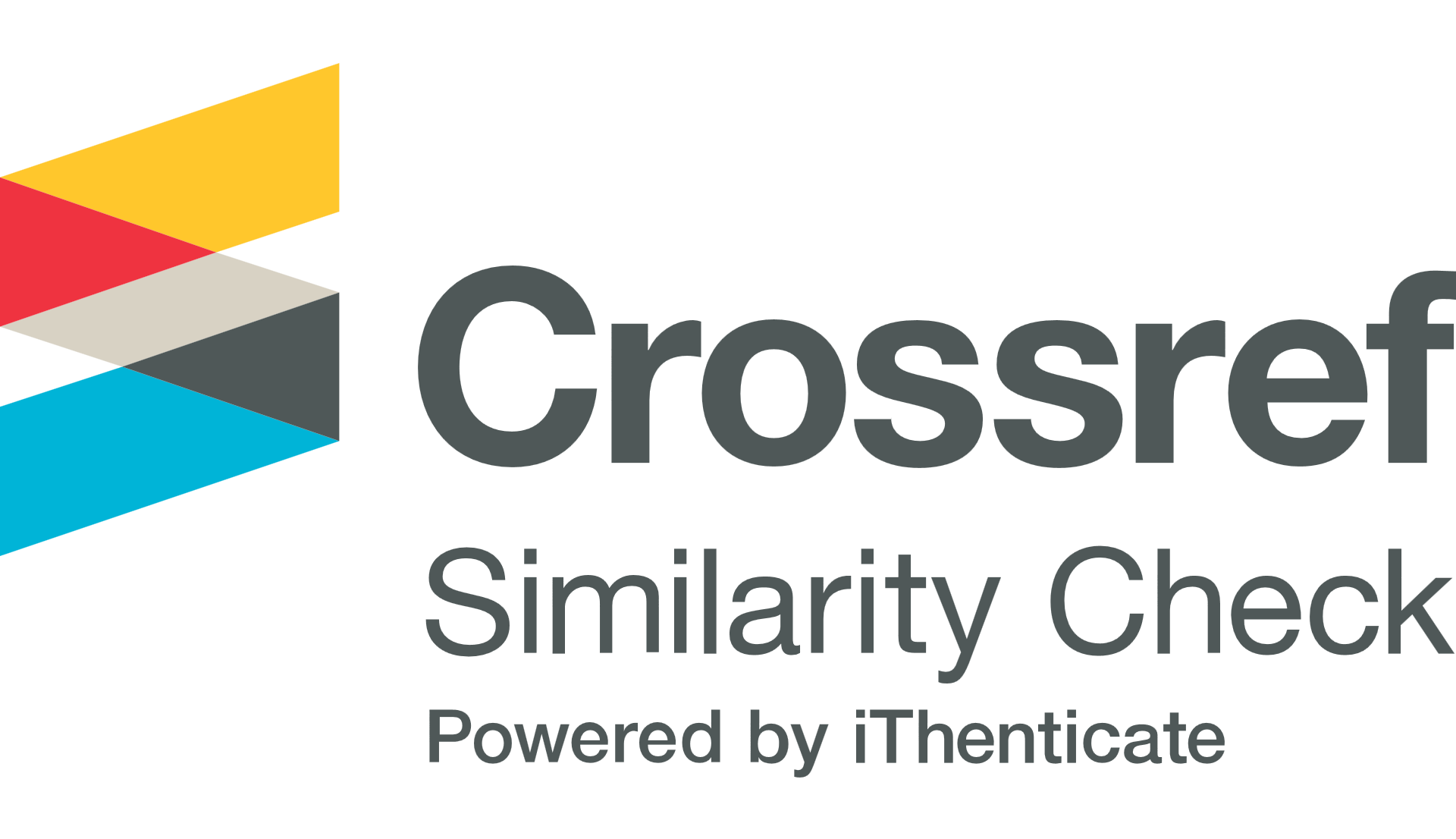Kebebasan Berpendapat Di Media Sosial Dalam Perspektif Hukum Pidana Di Indonesia
Abstract
Keywords
Full Text:
PDF (Bahasa Indonesia)References
Adami Chazawi, Author, Pelajaran Hukum Pidana Bagian 1 : Stelsel Pidana, Tindak Pidana, Teori-Teori Pemidanaan Dan Batas Berlakunya Hukum Pidana (RajaGrafindo Persada, 2010) [accessed 23 November 2022]
Alviolita, Fifink Praiseda, and Barda Nawawi Arief, ‘Kebijakan Formulasi Tentang Perumusan Tindak Pidana Pencemaran Nama Baik Dalam Pembaharuan Hukum Pidana Di Indonesia’, Law Reform, 15.1 (2019), pp. 130–48
Annur, Cindy Mutia, ‘Ini Media Sosial Paling Banyak Digunakan di Indonesia Awal 2024 | Databoks’, katadata, 2024 [accessed 23 February 2025]
Asmadi, Erwin, ‘Rumusan Delik Dan Pemidanaan Bagi Tindak Pidana Pencemaran Nama Baik Di Media Sosial’, De Lega Lata: Jurnal Ilmu Hukum, 6.1 (2021), pp. 16–32
Clara Sari, Astari, Rini Hartina, Reski Awalia, Hana Iriyanti, and Nurul Zulkifli, KOMUNIKASI DAN MEDIA SOSIAL, 2018
CNN, Adi, ‘Jokowi Resmi Sahkan KUHP Baru Jadi Undang-undang’, CNN, 2023 [accessed 23 February 2025]
Dewi, Christyana Olivia, ‘Perspektif Penanganan Perkara Tindak Pidana Pencemaran Nama Baik Terkait Dengan Impelementasi Hak Kebebasan Berpendapat Ditinjau Dari Hukum Pidana Dan Hak Asasi Manusia’, Lex Et Societatis, 6.4 (2018)
Dewi, Cok Istri Dian Laksmi, ‘Aspek Hukum Kebebasan Berpendapat Dan Berekspresi’, Jurnal Yustitia, 15.1 (2021), pp. 26–34
Hsb, Mara Ongku, ‘Ham Dan Kebebasan Berpendapat Dalam UUD 1945’, Al WASATH Jurnal Ilmu Hukum, 2.1 (2021), pp. 29–40
Jayananda, I Made Vidi, I Nyoman Gede Sugiartha, and Made Minggu Widiantara, ‘Analisis Tentang Pencemaran Nama Baik Dan Penyalahgunaan Hak Kebebasan Berpendapat Di Media Sosial’, Jurnal Analogi Hukum, 3.2 (2021), pp. 261–65
Kominfo, Kementerian, ‘Siaran Pers No. 87/HM/KOMINFO/12/2016 Tentang UU Revisi ITE Ditandatangani Presiden Dan Berlaku Mulai 25 November 2016’, Kominfo, 2016 [accessed 23 February 2025]
Lumenta, Alicia, ‘Tinjauan Yuridis Terhadap Tindak Pidana Pencemaran Nama Baik Menurut KUHP Dan Undang-Undang Nomor 19 Tahun 2016 Tentang ITE’, Lex Crimen, 9.1 (2020)
Marzuki, P.D.M., Penelitian Hukum: Edisi Revisi (Prenada Media, 2017)
Mulyono, Galih Puji, ‘Kebijakan Formulasi Tindak Pidana Pencemaran Nama Baik Dalam Bidang Teknologi Informasi’, Jurnal Cakrawala Hukum, 8.2 (2017), pp. 160–70
Muslih, Sodik, Mutiara Ramadhani, Diyah Ayu Riyanti, and Muhammad Marizal, ‘Implementasi Restorative Justice Pada Penyelesaian Kasus Pencemaran Nama Baik Dalam UU ITE’, Widya Pranata Hukum: Jurnal Kajian Dan Penelitian Hukum, 3.2 (2021), pp. 98–114
Nugraheny, Dian Erika, and Ihsanuddin Ihsanuddin, ‘Ditandatangani Jokowi, Revisi Kedua UU ITE Resmi Berlaku’, Kompas, 2024
[accessed 23 February 2025]
Pardede, Edwin, Eko Soponyono, and Budhi Wisaksono, ‘Kebijakan Hukum Pidana Dalam Upaya Penegakan Tindak Pidana Pencemaran Nama Baik Melalui Twitter’, Diponegoro Law Journal, 5.3 (2016), pp. 1–22
Ramadhan, Gilang Rizky, Yosaphat Diaz, and Asmak Ul Hosnah, ‘Penanganan Tindak Pidana Pencemaran Nama Baik Yang Dihubungkan Dengan KUHP’, Al-Zayn: Jurnal Ilmu Sosial & Hukum, 2.1 (2024), pp. 51–64
Saroinsong, Raisa L, ‘Pertanggung Jawaban Terhadap Pelaku Tindak Pidana Pencemaran Nama Baik Berdasarkan Pasal 310 KUHP’, Lex Privatum, 5.7 (2017)
Simamora, Fidelis P, Lewister D Simarmata, and Muhammad Ansori Lubis, ‘Kajian Hukum Pidana Terhadap Perbuatan Pencemaran Nama Baik Melalui Media Sosial’, Jurnal Retentum, 2.1 (2020)
Windradi, Fitri, Hery Lilik Sudarmanto, and Hery Sulistyo, ‘KEDUDUKAN HUKUM PIDANA INTERNASIONAL DALAM PERSPEKTIF HUBUNGAN INTERNASIONAL’, Transparansi Hukum, 4.1 (2021), doi:10.30737/transparansi.v4i1.1508
Wiraputra, Anindito Rizki, ‘Tindak Pidana Perdagangan Orang Dengan Subjek Tenaga Kerja Indonesia Dalam Perspektif Hukum Keimigrasian’ (unpublished PhD Thesis, Doctoral dissertation, Universitas Pembangunan Nasional Veteran Jakarta, 2020) [accessed 8 December 2023]
Undang-Undang Dasar Negara Republik Indonesia Tahun 1945
Undang-Undang Nomor 1 Tahun 1946. Kitab Undang-undang Hukum Pidana.
Undang-Undang Nomor 19 Tahun 2016 tentang Perubahan atas Undang-undang Nomor 11 Tahun 2008 Tentang Informasi dan Transaksi Elektronik
Undang-undang Nomor 1 Tahun 2023. Kitab Undang-undang Hukum Pidana.
Undang-undang Nomor 1 Tahun 2024 tentang Perubahan Kedua Atas Undang-undang Nomor 11 Tahun 2008 tentang Informasi dan Transaksi Elektronik.
Sari, A. C., R. Hartina., R. Awalia, R., H. Irianti., dan N. Ainun. 2019. Komunikasi dan Media Sosial. Fakultas Sastra Universitas Muslim Indonesia. 1-10.
Kementerian Komunikasi dan Informatika Republik Indonesia, Pemerintah akan Merevisi UU 11/2008 tentang ITE Tahun Depan, www.kominfo.go.id , Diakses pada tanggal 8 Juni 2024 pukul 10.56.
DOI: http://dx.doi.org/10.56444/sh.v21i2.5249
Article Metrics
Abstract view : 316 timesPDF (Bahasa Indonesia) - 0 times
Refbacks
- There are currently no refbacks.
![]()
![]()








 Spektrum Hukum |ISSN
Spektrum Hukum |ISSN